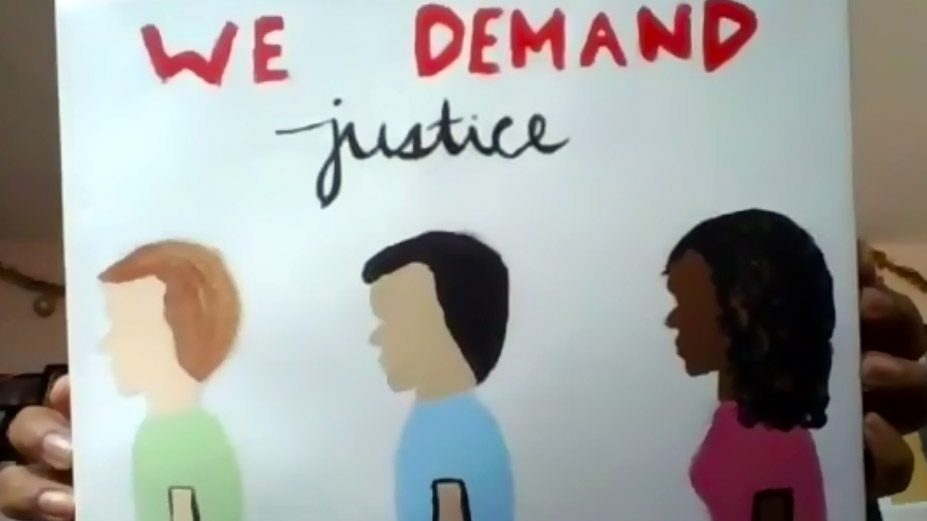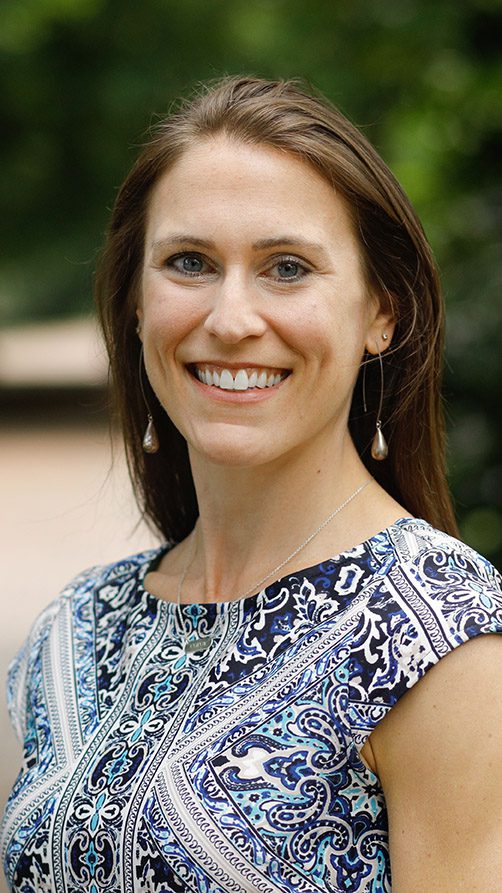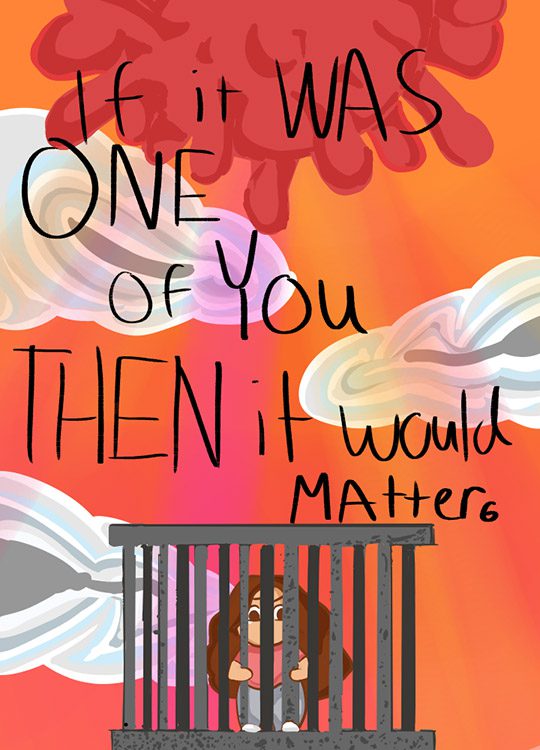Community steps up to help Bridges to a Brighter Future component go virtual

Missing loved ones has been one of the most difficult feelings to experience during the ongoing COVID-19 pandemic, and Carrie Silver is no exception. Well, technically there is one exception: Few people have so many loved ones to miss.
“I do feel like I’ve had to deal with being cut off from some of my family, and it’s been really hard,” Silver, director of the 75-student Bridges to a Brighter Future program, said. “You come to care about their well-being in a way that goes beyond just the teacher-student dynamic, because in a lot of ways they are our children too.”

Bridges to a Brighter Future Director Carrie Silver.
That’s why when one of the most important factors to that well-being, the annual summer residential program Bridge Foundations, was threatened by the closure of Furman’s campus, failing to solve the problem wasn’t an option – even though the options were very limited. The only solution was to replace the word residential with virtual, but Bridges students are Bridges students because of the unique educational barriers they face, and topping the list is poverty and lack of access to resources most kids take for granted.
That included, for many, the basic tools necessary to participate. Bridges to a Brighter Future is privately funded, but the virtual summer session would not have been possible had the community not stepped up even more. The Greenville County School District made sure those without internet at home were able to get online either at school hot spots or by working with local providers to obtain free access during class times. Several individuals loaned machines to those in need.
The result was an experience that mirrored the traditional in-person model as closely as possible.
“We put out a call that said, ‘We have this number of students who do not have computers at home. Can you help us?’ And we were able to obtain laptops for all of our students to borrow to access the program,” Silver said. “We were able to make it work, but it definitely was not an easy hurdle to jump over.”
Bridges Foundations 2020 featured the same core classes taught by certified teachers, electives taught by local experts, college planning sessions, workshops, guest speakers and game nights. In fact, some students even commented that a computer screen instead of a classroom turned out to be better in some respects.
“One thing that I’ve found surprising is there were a number of students who said this was actually a great platform for them for coming out of their shell,” Silver said. “(They) told us they felt like they could be more themselves and interact more comfortably instead of hiding in the back of the classroom, as one said. So there was a little bit of a silver lining there.”

A piece of art produced by Bridges to a Brighter Future student Clarice Gonzalez.
Established in 1997, Bridges to a Brighter Future is a comprehensive, Furman-based college access and success program for Greenville County high school and college students. All current participants come from households with an annual income of less than $35,000, 71% are or would be the first members of their families to attend college, and 59% are from single-parent homes.
Being a consistent, reliable presence in their lives is perhaps as important as anything Bridges has to offer.
“We had a four-week program (scheduled) in the summer, and we still had a four-week program in the summer,” Silver said. “We were able to maintain some of our standards and make sure our students didn’t fall victim to any summer slide … The social aspect of Bridges is really important, too. Students need to learn how to trust and know that there are people out there who will always be there for them, so we had to work really hard to make sure that we had virtual interactions that got to the heart of what we call the Bridges family.”
Other components to the Bridges program include Saturday College, a year-round monthly academic program at Furman, and Crossing the Bridge, a college-retention program to ensure students graduate. This fall, 24 participants in the Bridges program will enter college, including three at Furman, and more than 100 Bridges students are currently in college across the country.
The most recent class was selected in the spring, and in addition to being the 24th, it was also the first to be selected – you guessed it – virtually. Silver says Saturday College this year will also begin virtually, with hopes in-person campus visits will resume sooner rather than later.
That means the hugs that highlight every reunion won’t be possible, but it will not be that way forever. And Silver is confident the Bridges students will outlast and overcome the unforeseen challenge presented by the pandemic.
“The students who finished their high school career virtually, what an amazing group they are. And they’re college bound,” Silver said. “It looks so different depending on where they’re going, but I am so proud of them for not letting the pandemic get them off course, because it is so easy, especially when you’re first-generation, under-represented, dealing with chronic poverty, dealing with major stress, to just say maybe this is a sign this wasn’t meant to be. But they have not let that thought get into their brains.”